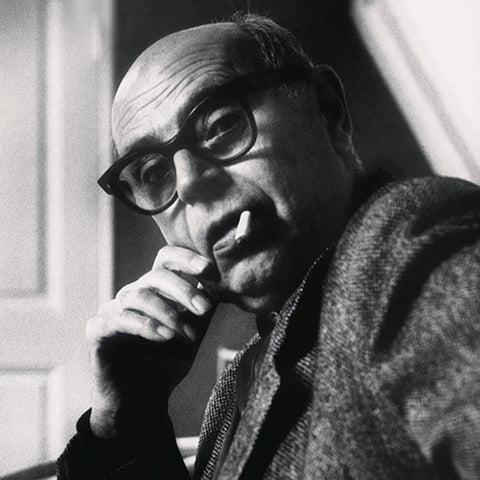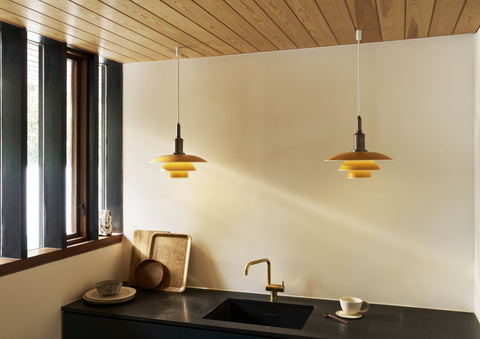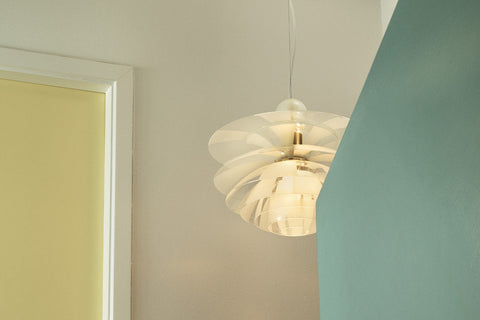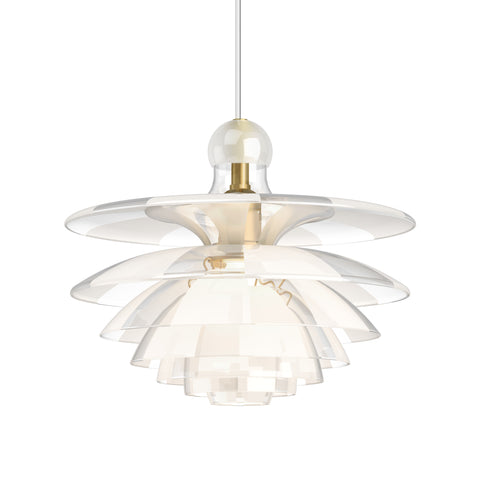

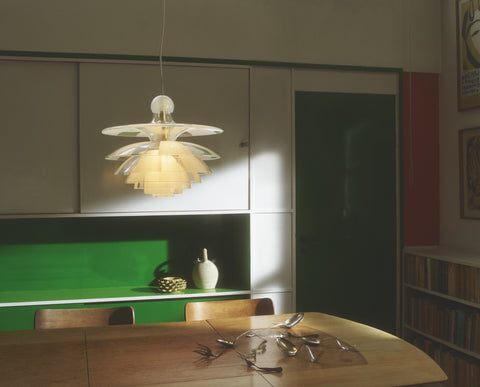
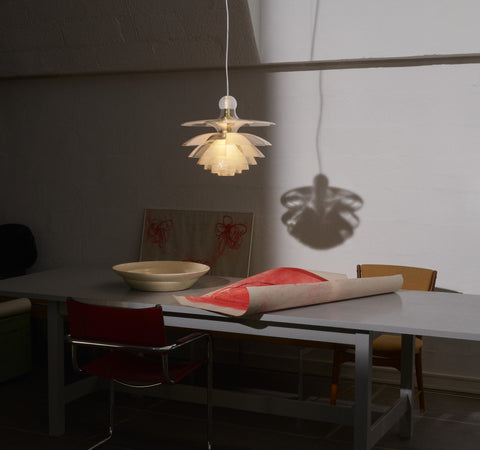

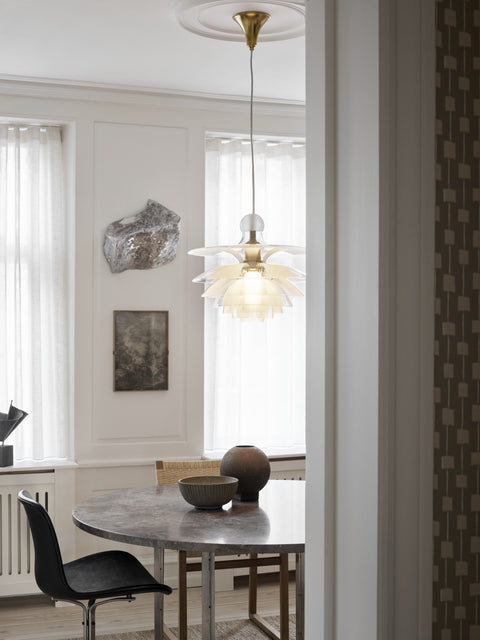
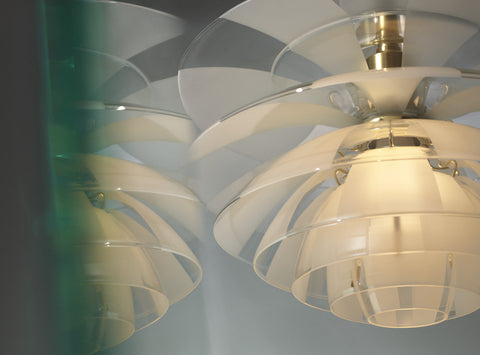
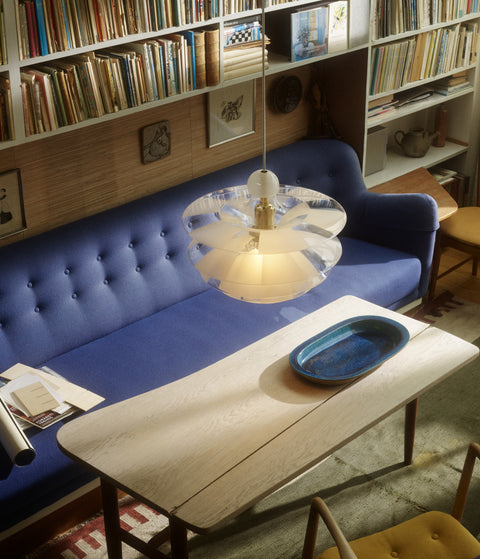
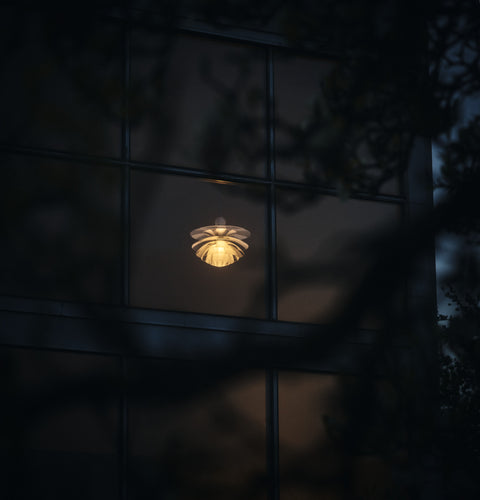
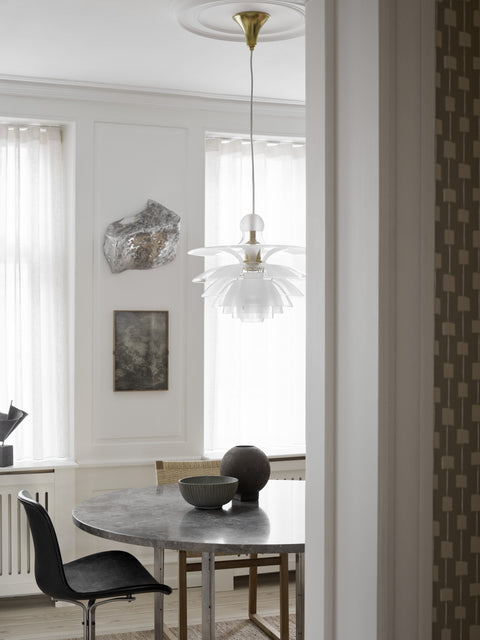
PH Septima
The seven-shade glass crown emits a glare-free, downwardly directed light while radiating a pleasantly delicate glow. Frosted glass fields alternately cover the clear ones from shade-to-shade, thus diffusing the light even more softly.
The PH Septima is regarded as one of Poul Henningsen’s most refined pendants. When exhibited for the first time as a prototype at the Danish Museum of Decorative Art (now Designmuseum Danmark) in 1928, the poetic piece was publically applauded. Based on the PH three-shade system, the glass crown has four extra shades inserted between the three basic shades - all seven produced in very delicate, but also strong, Italian borosilicate glass. The shades made of clear glass are treated to appear with alternate clear and frosted fields and are positioned so the frosted fields cover the clear fields underneath, allowing the shades to spread the light in a more diffused manner, while maintaining glare-free, downward directed light distribution. In addition, a neat round glass cup is placed at the top in order to prevent dust etc. from falling into the lamp. In 1931, a smaller PH Septima 4 was launched based on shade sizes from the PH 4/4 lamp, where the original PH Septima 5 is based on shade sizes from the PH 5/5. During the development of the PH Septima, Henningsen designed a metal version as well, but it never reached production. The drawings however formed the basis for the development of the PH Artichoke, designed around three decades later for the Langelinie Pavilion in Copenhagen. In the 40s, however, the esteemed PH Septima went out of production together with numerous other lamps at the time, due to the shortage of raw materials. In 2020, Louis Poulsen brings back Poul Henningsen’s sophisticated seven-shade glass crown, based on the PH Septima 5 with optimized suspension and enhanced glass for better endurance and stability.
Length: 19.7"
Width: 19.7"
Height: 15.9"
Cable Length: 118"
Finish:
Clear glass with sandblasted fields. Untreated satin-polished brass.
Material:
Shades: Clear glass with sandblasted fields
Legs: Steel, metallized brass
Socket housing and canopy: Untreated satin-polished brass
Please note
that the brass surface is untreated. The untreated brass will change over time and develop a patina.
Most Louis Poulsen lighting fixtures come with a 5-year warranty. However, specific products have different coverage:
- Portable fixtures (such as table and floor lamps): 2-year warranty
- Separately purchased components (like replacement parts): 2-year warranty
Poul Henningsen (1894-1967) was a highly influential Danish designer, architect, writer, and cultural critic, renowned for his pioneering work in lighting design, which remains integral to Louis Poulsen’s heritage. Born in Copenhagen to writers Agnes Henningsen and Carl Ewald, Henningsen initially practiced functionalist architecture but became famous for his innovative lighting designs. During WWII, he briefly served as the head architect for Tivoli Gardens before fleeing to Sweden, where he joined a community of Danish artists.
BrandEstablished in 1874 as a lighting manufacturer, Louis Poulsen has become one of the world's leading producers of lighting. This success is attributed to collaborations with renowned designers and architects like Arne Jacobsen, Øivind Slaatto, Poul Henningsen, and Verner Panton.
